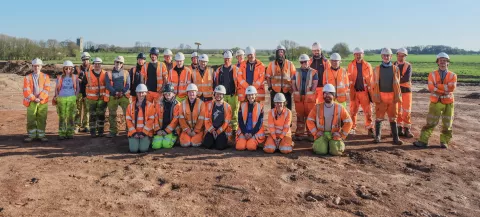Our people
Executive Team
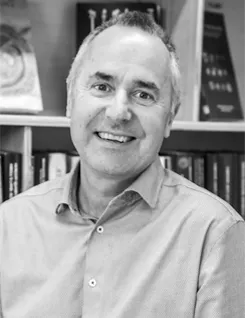
As CEO, Ken is responsible to the Board of Trustees of Oxford Archaeology for the leadership and effective operation of the business as a whole. He provides the strategic lead in the development of OA, both as a business in a competitive environment and as a charitable organisation involved in archaeological research and education for the public benefit.
After graduating in 1986 with a BSc (Hons) in Environmental Science, Ken worked as a geologist before transferring to archaeology in 1988. Since joining Oxford Archaeology in 1995, Ken has managed a wide range of archaeological projects and has particular experience in the management of complex mitigation schemes within large-scale infrastructure works, development of innovative and cost-effective approaches to archaeological mitigation, implementation of digital recording systems, databases and GIS analysis, and the provision of archaeological planning advice. He is also a qualified Health and Safety Advisor.
From 2016-2021, Ken was the Regional Manager in Oxford, responsible for the successful operation of that office.
He is a Member of the Chartered Institute for Archaeologists (MCIfA) and a Fellow of the Society of Antiquaries (FSA).
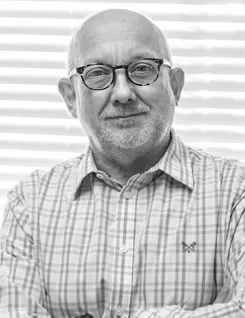
Andy joined Oxford Archaeology as Chief Financial Officer in March 2021. Andy is a very experienced financial professional and joined OA after spending over a decade in global roles in the international charity sector. Prior to this he worked in industry as well as in business and technology consultancy. In addition to financial management, Andy has extensive experience in business change, technology delivery, programme management and digital transformation.
At OA, Andy has overall responsibility for the leadership of finance, legal, HR, property and is also the interim Chief Information Officer. He is currently overseeing the major business system and IT infrastructure modernisation for the charity.
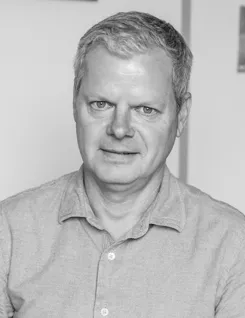
Dan has worked for Oxford Archaeology since 1992, starting as a volunteer and working his way up the ranks of the fieldwork team, with a focus on urban archaeology. He has extensive experience of project management and the pursuit of new contracts, gained from his years as a Senior Project Manager and then as head of the Oxford Archaeology Fieldwork and Contracts teams at our Oxford office. As COO, he is responsible for operations company-wide, ensuring quality and compliance across all Oxford Archaeology projects, including our ISO 9001, 14001 and 45001 certification. Dan leads on OA’s key infrastructure projects and partnerships, particularly the Oxford-Cotswold Archaeology JV.
Dan is responsible for Health, Safety and the Environment and is a Technical Member of the Institute of Safety and Health (IOSH). He also leads on training. He is a Director of the Federation of Archaeological Managers and Employers (FAME), a Member of the Chartered Institute for Archaeologists (MCIfA), and a Fellow of the Society of Antiquaries (FSA).
Board of Trustees
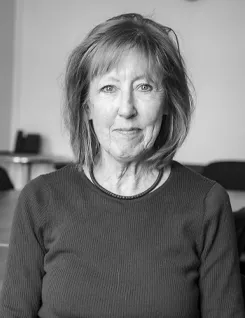
Jan’s professional career in archaeology started in fieldwork in the midlands and north of England. Moving into local government she managed both curatorial and fieldwork teams, most recently in Gloucestershire as County Archaeologist. For the last 10 years she has worked part time as a consultant on research projects, current sector issues, and organisational reviews. Her trustee and advisory roles have included Chair of the Association of Local Government Archaeologists, trustee of the Council for British Archaeology, Chair of the Institute for Archaeologists, and membership of the Historic England Advisory Committee. She is currently a Trustee of the Heritage Alliance, President of her county archaeology society, a Member of CIfA and a Fellow of the Society of Antiquaries of London.
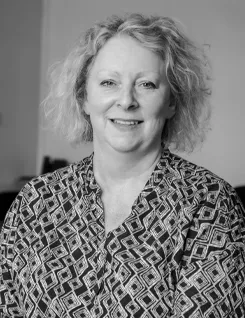
Alison has had a connection with Oxford Archaeology for over 30 years. She worked for Oxford Archaeology on the Eynsham Abbey site in the summer of 1990 before embarking on her doctoral research. In the late 1990s and 2000s she organised placements at Oxford Archaeology for students on the Professional Archaeology programme at Oxford University Department for Continuing Education (OUDCE).
She is currently Assistant Director at OUDCE, with responsibility for the Department’s undergraduate and postgraduate award-bearing programmes and accredited short courses. She teaches on a number of archaeology courses and supervises DPhil students.
Her fieldwork has been in central Italy and her research interests include Roman landscape archaeology, Roman urban life, and individuality and expression of identity in the Roman world.
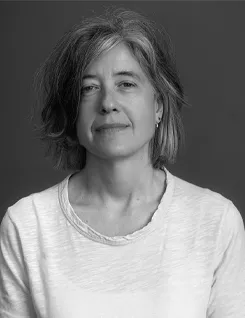
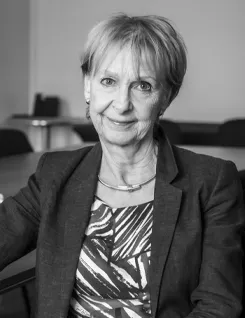
Gill has been a cultural heritage consultant for over 35 years working in both commercial and charity environments. She has a comprehensive knowledge of the heritage sector and has advised on the historic environment aspects of a number of major national infrastructure projects including Heathrow Terminal 5 and London Gateway Port, Essex. She is skilled at project planning and has been an expert advisor, mentor and monitor for the National Lottery Heritage Fund for over 20 years, supporting the development and delivery of major capital projects.
She has extensive experience of governance and business planning, having undertaken strategic planning reviews and option studies for a wide variety of organisations including Historic England and Cadw. She has served on the boards of a number of heritage and arts bodies, including as President of the Society of Antiquaries of London from 2014-18.
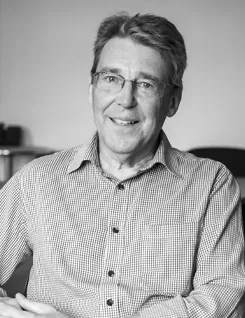
Paul joined the Trustees in 2020 having retired from a career in professional archaeology. A graduate from the University of Wales (University College Cardiff), after a stint on the digging circuit in the mid 1970s, Paul went into local government, first in North Yorkshire where he created the Sites & Monuments Record for England’s largest county and then in Berkshire, where he also developed innovative planning policies that helped form a basis for government planning policy in PPG 16. Since 1991 he has worked in archaeological planning consultancy and was a founding Director of CgMs Consulting. Since retiring Paul has undertaken a study of Roman agricultural landscapes in Midland and southern England and is currently preparing a D. Phil thesis at the University of Oxford on Romano-British rural settlement and farming.
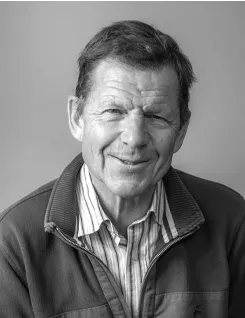
Richard is an Associate Fellow at the Saïd Business School, University of Oxford. His current projects include programmes for mid-career Indian professionals and the Archbishop Tutu Leadership Fellowship Programme.
Richard has worked at Oxford University for over 20 years both at the Business School and before that as the administrator of the Department of Materials where he helped set up the University’s Science Park at Begbroke. His early professional experience was as a UK civil servant and diplomat. He has also worked in the water industry as an economic consultant and specialist journalist. Richard is an active Friend (and former Chair of Friends) of the Pitt Rivers Museum. Richard brings to Oxford Archaeology broad experience as a Trustee as well as familiarity with practical management in tight financial circumstances.
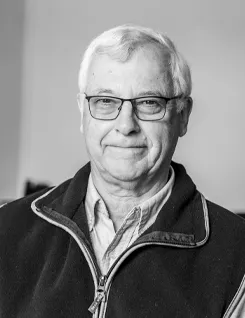
Simon has worked in the education during his professional career and has experience in Charitable Trusts. He has kept an active interest in Archaeology since he studied it in his undergraduate days. As well as being a Trustee of Oxford Archaeology he is a Trustee of The Vale of the White Horse and Ridgeway Archaeological & Historical Trust. He has also a long association with the Friends of the Ashmolean.
His academic interests extend to local history and he is a member of the Oxfordshire Architectural and Historical Society. He sees public benefit and educational outreach as essential aspects of Oxford Archaeology’s role in the community.
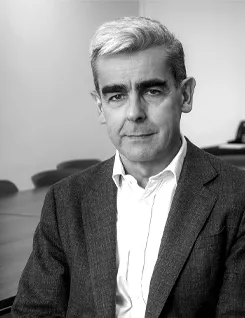
Steve has extensive finance and general management experience as a board member of public and private companies. After qualifying as an accountant with Coopers & Lybrand, he worked as a strategy consultant and then spent 10 years in the retail sector at Homebase and B&Q. Subsequently he was a main board director in businesses covering telecoms, commercial property, residential property services and financial services.
During his commercial career Steve has led delivery of new products and services, strategic acquisitions and disposals, investment projects, business turnarounds, cost saving programmes, debt and equity refinancings, and major systems changes.
Most recently Steve moved into the charity sector during the pandemic as bursar and trustee of Keble College, Oxford before retiring from executive roles in late 2024.
Steve has a degree in Natural Sciences from Cambridge University and is a Fellow of the Institute of Chartered Accountants in England and Wales.
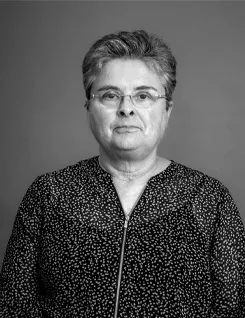
Sue specialises in working with charities and social enterprises and is passionate about the difference these organisations can make, both in local communities and in society. Her business expertise and skills come from a career in banking, working with charities and social enterprises at Triodos Bank UK and as CEO of a similar regulated finance organisation in New Zealand.
Returning to the UK she set up a new social investment programme for an endowed charitable foundation and worked for a place-based investor, developing a new social impact investment fund. Sue has a longstanding personal interest in history and archaeology and is based in Bristol working as a charity trustee, non-executive director and consultant.
Regional Managers
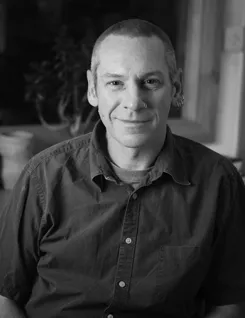
Fraser has been working in British archaeology since the late 1980s and graduated with a BA in Archaeology and Prehistory from Sheffield University in 1995. He joined Oxford Archaeology in 1998 and is Regional Manager for our Lancaster office. Fraser is also a qualified Health and Safety Advisor and helps co-ordinate and implement health and safety policy.
He has considerable project management experience, overseeing projects, in both rural and urban environments, from tender through to publication. He has routinely undertaken work for the building construction, mineral extraction, transport and energy sectors, and has particular experience of large-scale infrastructure projects, including road schemes, long-distance pipelines and airports. Fraser has a keen interest in British prehistory, especially the Mesolithic and Neolithic periods and has expertise in lithic sites and waterlogged environments. Digital recording techniques and geospatial analyses are also areas of interest. Notable recent projects include the Asselby to Pannal Natural Gas Pipeline, the Isle of Man Airport Runway End Safety Area project, Carlisle Northern Development Route, the A487 Caernarfon to Bontnewydd Bypass, and the A585 Windy Harbour to Skippool Bypass.
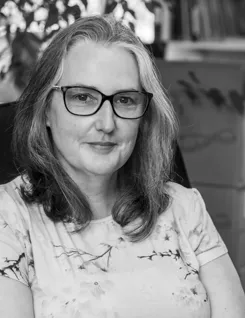
Katrina has worked for Oxford Archaeology since 2004 and has over 15 years' experience in professional archaeology in the UK and abroad. As well as being OA South's Regional Manager, she also manages a portfolio of projects. She has a particular interest in early Roman Britain and the archaeology of World War II.
Katrina holds a PG Dip in Forensic Archaeology from Bournemouth University and an MA in Classical Studies from Victoria University of Wellington, New Zealand. She is an Associate of the Chartered Institute for Archaeologists (ACIfA).
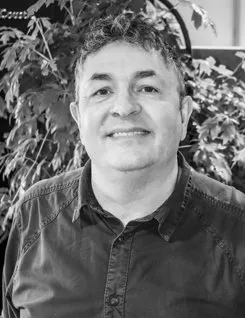
Stephen has over 30 years' experience in British, French and North American archaeology. He graduated from the University of Sheffield with a BA in Prehistory and Archaeology and has an MPhil in Archaeological Heritage and Museums from the University of Cambridge.
He is a leading proponent of Public Archaeology and has the responsibility for the education and outreach projects across Oxford Archaeology, managing the Oxford Archaeology Outreach service. Stephen has considerable experience in successfully obtaining grant aid for this type of heritage project.
He has extensive experience in project management, contracts and the heritage sector in general. Stephen is a Heritage Management and Roman specialist, and continues to pursue research projects in these areas, predominately but not solely in the Eastern Region. Stephen is a full Member of the Chartered Institute for Archaeologists (MCIfA), a member of the Council for British Archaeology (East) and sits on the council of the Cambridge Antiquarian Society.
Senior Management Team
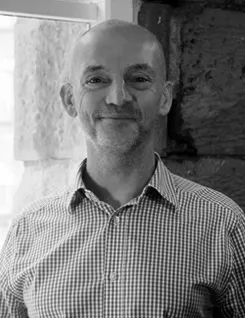
Alan has over 30 years' experience in professional archaeology in the UK and abroad and is a Member of the Chartered Institute for Archaeologists (MCIfA). He graduated in 1986 with a BA (Hons) in Ancient Mediterranean Studies from Bristol University, gained an MA (distinction) in 1988 at the Institute of Archaeology, UCL, and a PhD from Cambridge University in 1995.
Alan worked for Oxford Archaeology (OA) between 1995-7 and re-joined the company in 2001 working in our Lancaster office. He has managed a wide range of archaeological projects and has particular experience in the management of complex mitigation schemes within large-scale infrastructure works.
Since 2003, Alan has been the Operations Manager in Lancaster, is part of the Regional Management Team and also the Senior Management Team for OA. In his current role, he is responsible for fieldwork in the Lancaster office, overseeing quality and compliance across projects.
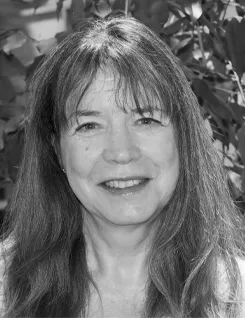
Liz oversees the post-excavation research and publications function at our Cambridge office. She has worked for Oxford Archaeology (and its predecessor) for twenty years. Her job is to manage all aspects of post-excavation work, including the finds, environmental and graphics teams. She also edits all of the academic and popular publications produced by the Cambridge team, ensuring that the highest academic standards are maintained and that projects are delivered on time to clients.
Having graduated from the University of Nottingham with a degree in Ancient History and Archaeology, she also has a PhD from the University of East Anglia. Liz has considerable experience in managing complex projects and specialises in urban Late Saxon and medieval archaeology, with particular interests in castle and cemetery studies.
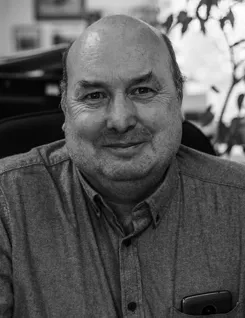
Gerry joined Oxford Archaeology as an Archaeologist in 2000, after graduating from the University of Reading. Gerry spent the next decade or so excavating sites as an Assistant Supervisor, Supervisor and Project Officer before gaining promotion to Senior Project Manager in early 2013. During his time as a manager, he ran a diverse range of projects, from Palaeolithic flint sites to industrial complexes, via work for the Oxford Colleges, but specialised in large-scale rural sites of prehistoric and Roman date. He has also undertaken the post-excavation analysis of sites and has worked extensively in the Contracts Department, providing high quality tenders for new work opportunities. Additionally, Gerry has responsibility for overseeing the fieldwork training programmes at the Oxford office, managing staff progression through the Graduate Trainee to Project Officer programmes. Gerry was promoted to Head of Fieldwork for the Oxford office in early 2025 and is passionate about continuing to deliver the high standards of work undertaken by our fieldwork teams. Gerry is a Member of the Chartered Institute for Archaeologists (MCIfA) and holds a Site Management Safety Training Scheme (SMSTS) qualification.
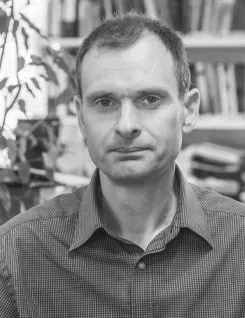
Leo has worked in the Oxford office of Oxford Archaeology as Head of Post-Excavation since 2016. In this role, he manages the Post-Excavation department and oversees the publication programme, as well as being part of the Senior Management team in Oxford. He previously held positions at Reading, Leicester and Bristol Universities, and has published widely on the later Bronze Age and Iron Age in northwest Europe. He has a PhD in Archaeology from the University of Cambridge, focusing on the Danish Iron Age. He is a Fellow of the Society of Antiquaries of London and a full Member of the Chartered Institute for Archaeologists.
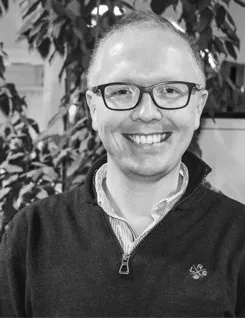
Pat has worked in commercial archaeology since 2008 and holds a BA in Archaeology and Ancient History from Reading University.
In his current role as Senior Project Manager, Pat co-ordinates the archaeological fieldwork and post-excavation programmes for large residential, commercial and NSIP projects across the East of England, including their contractual and financial management. Major projects he has recently managed include the 25ha Iron Age and Roman settlement complex at Wintringham, St Neots, and a 1,400 trench evaluation and 13ha of mitigation along the Hornsea Project 3 windfarm onshore cable route.
A background in heritage consultancy also allows Patrick to provide up to date and accurate pre-application advice to clients regarding a site’s heritage potential and mitigation requirements that may be required.
Pat has a particular interest in the Late Iron Age to Early Roman periods and Roman rural settlement patterns. He is a full Member of the Chartered Institute for Archaeologists (MCIfA)
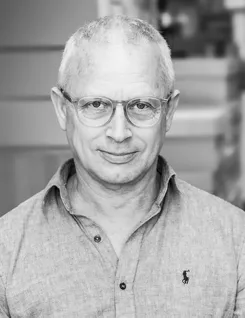
Richard has been a professional archaeologist since joining Oxford Archaeology in 1985. As a Fieldwork Senior Project Manager from 2000-2022, Richard specialised in urban and infra-structure projects and has been responsible for managing fieldwork and post-excavation projects including HS1 (Whitehorse Stone, Ebbsfleet International Station, the Southfleet Elephant excavation), the western section of Crossrail (Old Oak Common, Paddington, Tottenham Court Road and Bond St Stations), HS2 (HS2 Central and North Built Heritage for COPA JV), and multiple road-schemes (A120, A5, A421). Richard also has a background in castle/chateau excavation (Chateau de Mayenne, Chateau de Falaise, Windsor Castle, Tower of London) and has overseen work for the Royal Household at Buckingham Palace, St James’ Palace, Windsor Castle, Clarence House, Marlborough House and Kensington Palace since 2009.
As Head of Contracts and Business Development, Richard leads the tender team at the Oxford office of Oxford Archaeology as well as co-ordinating and overseeing tenders across Oxford Archaeology.
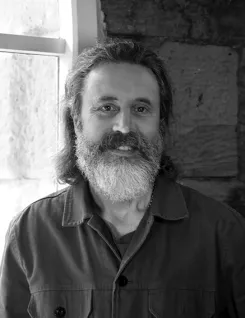
Richard holds a PhD in Archaeology and a BA (Hons) in Geography and Archaeology, both awarded by the University of Manchester. He has worked in archaeology for nearly 30 years, initially as a university-based researcher and latterly in commercial archaeology, and has been engaged in all aspects of the archaeological process, including desk-based research and assessment, excavation, post-excavation assessment and analysis, and publication. He has a specialist interest in post-excavation, and the prehistoric and early historic archaeology of northern Britain, with a particular emphasis on the Irish Sea area (south-west Scotland; north-west England, and north Wales), and has authored or co-authored numerous archaeological reports and publications relating to this area. As a Post-Excavation Project Manager, Richard oversees and is involved in many aspects of post-excavation in the Oxford Archaeology Lancaster Office, and is actively involved in the dissemination of the results from developer-funded excavations undertaken by Oxford Archaeology.
Meet the team
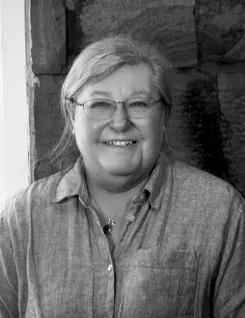
Rachel graduated from the University of Durham with a BA in Archaeology and Anthropology and has worked in the North West for 40 years, during that time gaining a wealth of knowledge about the archaeology of the region. She acts as Senior Executive Officer: Research and Publications at the Lancaster office of Oxford Archaeology, in which role she oversees the post-excavation programme from post-excavation assessments through to publications. From its instigation, she has been the Series Editor for the Lancaster Imprints monographs and has overseen the development of the Greater Manchester’s Past Revealed series. She also has an overview of community and research projects undertaken by the office.
Rachel has a deep commitment to the archaeology of the region, with a specialism in the early medieval period. She acted as period coordinator for this during both the compilation and updating of the North West Regional Archaeological Research Framework, working also as a member of its steering group. She was also a member of the steering group for the Hadrian’s Wall Research Framework, and has acted as a committee member for the last three Hadrian’s Wall Pilgrimages, and the International Limes Congress, held in Newcastle in 2009, as well as being a member of the Hadrian’s Wall Partnership Board Research Delivery Group. She is a Fellow of the Society of Antiquaries of London, a Past President of the Cumberland and Westmorland Antiquarian and Archaeological Society, and Trustee of the Senhouse Museum Trust, as well as being active in other local societies.
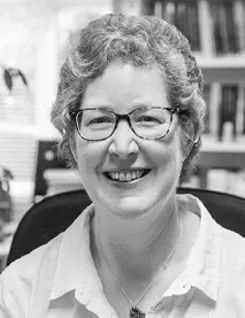
Rachel holds a degree in Archaeology from the University of Durham, where she also completed her PhD in 1996 on Medieval Glass Vessels found in England AD 1200-1500. She has worked as a glass specialist and published widely on a wide variety of projects for over 25 years for commercial units, community excavations and research projects. As well as using glass vessels, beads and windows from the Iron Age onwards to illuminate different aspects of life on a site, through what glass was used for and its social status, particular interests include the presence of glass from the Byzantine and Islamic eastern Mediterranean in Britain, the use of medieval glass uroscopy vessels for medical diagnosis, and the study of window glass from archaeologically recovered fragments.
She is also an editor and copy-editor, having worked on archaeological publications for bodies such as the British Museum, Historic England, the Society of Antiquaries and Cotswold Archaeology, and is a Professional Member of the Chartered Institute of Editors and Proofreaders. She has been editor on the board of the Association for the History of Glass and the Finds Research Group AD 700-1700.
Rachel returned to Oxford Archaeology in 2024 as a Project Officer, having worked here previously in the early 2000s. As well as researching glass and other related artefacts she copy-edits excavation publications.
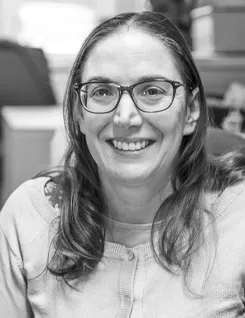
Rebecca is a lithics specialist, undertaking the identification, recording, analysis and reporting of all types of worked lithics, particularly British Mesolithic to Iron Age industries. She has an undergraduate degree in Archaeology from the University of Reading (2002) and a Masters in Artefact Studies from the Institute of Archaeology at UCL (2005). Rebecca began her career in commercial archaeology at Oxford Archaeology but has also designed and taught practical classes in lithics analysis to undergraduate students at the University of Aberdeen and has spent the last 11 years working as a freelance specialist. She has been an Associate member (ACIfA) of the Chartered Institute for Archaeologists since 2006 and is an active member of the Lithic Studies Society.
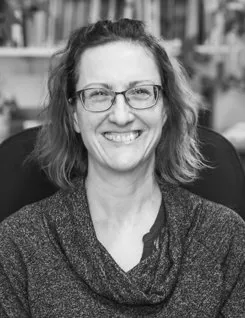
Ruth has worked for Oxford Archaeology since 2001 as a Project Officer (post-excavation). She specialises in the analysis of worked stone objects including the use of petrography. Ruth has applied these skills to the recording of standing buildings, most recently at All Souls College, Oxford. Ruth also works as a CBM specialist and has an interest in fired clay loomweights and spindle whorls.
Ruth has a degree in Archaeology (1995) and a PhD in Archaeology and Geology (1998) from the University of Reading’s Archaeology Department and Postgraduate Research Institute for Sedimentology (PRIS). She is a Member of the Chartered Institute for Archaeologists and a Fellow of the Society of Antiquaries. Ruth has carried out extensive researches querns and millstones as well as other artefacts of worked stone, for example loomweights, whetstones and lamps, which she publishes in local and national journals. Ruth edited the volume “Written in Stone” on prehistoric stone tools (2017).
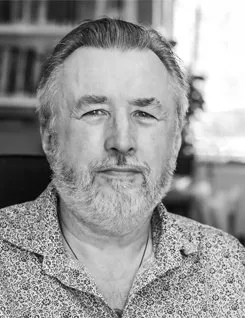
Steve spent 20 years with the Winchester Archaeology Unit and directed a number of excavations within the city. He used his experience in the 1990s to draft the Winchester Urban Assessment which developed his GIS skills and later managed the fieldwork unit. After joining Oxford Archaeology in 2004, he supervised two of the largest excavations in Winchester in recent years and was a principal author in their publication. His current role is the assessment, analysis and publication of excavations within the historic centres of Oxford, Ipswich, Southampton, Bristol, London and Stafford, mostly as a principal author. He has also published articles on non-urban sites such as diverse as the Roman villa at Monk Sherborne, Beaker burials at Basingstoke and an Iron Age pit alignment at Brewood, Staffordshire.
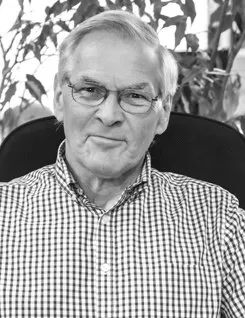
Tim has directed and written up archaeological excavations for Oxford Archaeology for over 30 years. His excavation projects include pipelines, road schemes, urban redevelopment, mineral extraction, housing, and work in modern cemeteries. The largest and most complex of these have been the Abingdon Vineyard Redevelopment, Eton Rowing Course, the A2 Pepperhill to Cobham Road Widening in Kent, and the Rocade Briochine at St Brieuc in Brittany. He has also directed research excavations and surveys built around public participation for the Earth Trust at Little Wittenham in Oxfordshire.
Tim acted as the Highways Agency’s Archaeological Advisor on the A13 Thames Gateway DBFO scheme and for the SW Framework Environmental Consultancy for proposed dualling schemes in Cornwall. He provided the Cultural Heritage contribution to the A2 Pepperhill to Cobham EIA. He has also been consultant to the Vale of White Horse District Council, Eton College, and several developers.
Tim is an experienced publicist of archaeology through open days, exhibitions, popular publications, web pages, public lectures and talks, promotional films, TV and radio. Tim has an MA and BA (Hons) in Classics from the University of Oxford, and is a Member of the Chartered Institute for Archaeologists (MCIfA) and a Fellow of the Society of Antiquaries of London (FSA).
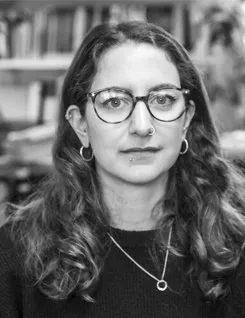
Tina is currently working as a post-doctoral researcher on the ‘Rewilding’ Later Prehistory project (https://rewilding.oxfordarchaeology.com/) and specialises in ancient plant remains (archaeobotany). Tina was awarded her PhD in geometric morphometric analysis of wheat grains in 2022, having previously undertaken an environmental archaeology master’s in 2016/7 and worked as an archaeobotanical lab technician in 2018/9, both at the University of Oxford. She started out in the field at Trent and Peak Archaeology in 2013, and later worked as a project officer specialising in environmental sampling/analysis. While particularly interested in prehistoric and early medieval Britain, she has worked on a range of assemblages, including Neolithic and Bronze Age sites in the Near East. Her research interests include the uses of wild plants, diversification and resilience in crop cultivation, open science practices and how archaeology can inform contemporary nature recovery.
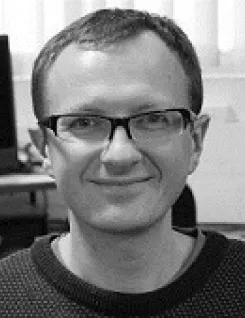
Tom graduated with a BA in Ancient History and Archaeology from the University of Liverpool in 2002. Since then he has worked in field archaeology, predominantly in the east of England. As a Project Officer he directed a wide range of fieldwork projects, including the large-scale excavations at Clay Farm, Cambridge and infrastructure projects such as the Bury St Edmunds to Thetford Anglian Water Pipeline. His main research interest lies in landscape archaeology, particularly how landscapes developed and changed during prehistory.
Since 2015 Tom has been a Senior Project Manager, initially in fieldwork, overseeing several large excavations in East Anglia including the Norwich NDR road scheme, and is now part of the post-excavation team. In addition to his role at the Cambridge office of Oxford Archaeology, Tom has excavated in Israel and Egypt and has been involved long term with the Blick Mead research project, a Mesolithic site near Stonehenge. Tom is also an Associate of the Chartered Institute for Archaeologists (ACIfA).

